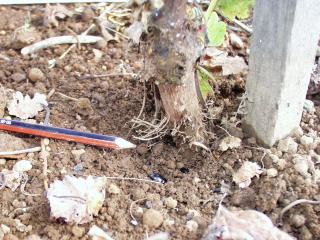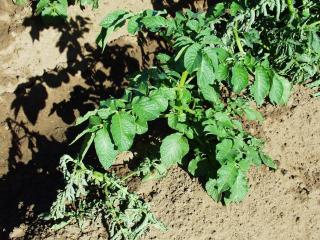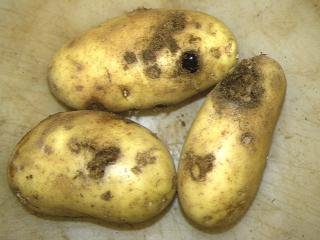Pest status
African black beetle is primarily a grass-favouring, pasture-dwelling insect.
As such, most of its pest status in horticulture results from planting crops in infested pasture.
Because of the beetle’s strong flight activity, crops may become infested when the beetles disperse. Less commonly, crops may be infested along edges after beetles walk into a crop from adjacent infested pasture.
Where irrigation is used in horticultural crops, the higher survival rate for larvae in summer may lead to greater damage from both larvae and subsequently adults.
Adult beetles feed on plant stems near the soil surface. This occurs in vineyards, fruit and truffle orchards, olive groves and newly emerging vegetables such as potatoes and vegetable brassicas.
In vineyards, the foliage of red grape varieties attacked by beetles turns red prematurely. In white grape varieties, foliage of damaged vines turns yellow. Young stems in potato crops wilt and die.
As well as affecting plant establishment, adult beetles can feed directly on the harvestable portions of crops. This applies to potato tubers and occasionally truffles.
Larvae are true soil insects, feeding on organic matter and below-ground parts of plants.
Larvae are less damaging than the adults, and rarely damage crops or pasture. However, they can damage potato tubers if crops of appropriate maturity coincide with the presence of mature larvae - December to January.
Larvae feeding on the roots of turf result in dead patches in lawns.



